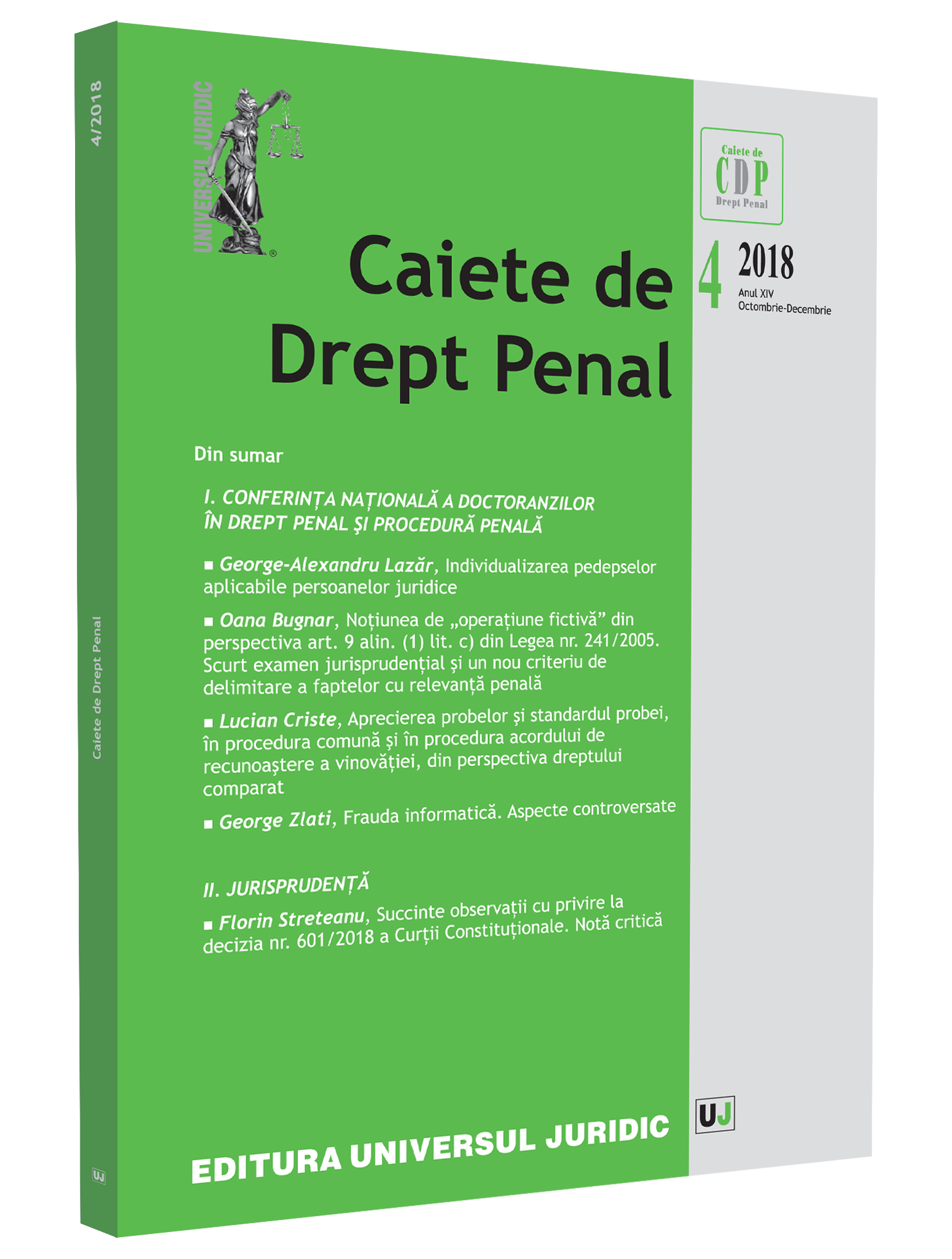Succinte observaţii cu privire la decizia nr. 601/2018 a Curţii Constituţionale. Notă critică
Brief comments on Decision no. 601/2018 of the
Constitutional Court. A critical note
Author(s): Florin StreteanuSubject(s): Law, Constitution, Jurisprudence, Civil Law
Published by: Universul Juridic
Keywords: multiple offenses; minority; calculus of penalties; educational measures;
Summary/Abstract: Recently, the Constitutional Court was challenged with a claim regarding the unconstitutionality of Article 129 paragraph (2) letter b) of the Criminal Code, according to which „in case of two offenses, one of which is committed while underage and the other one after having turned 18, an educational measure shall be ordered for the offense committed while underage and a penalty shall be ordered for the offense committed after having turned 18 [...] b) in case of custodial educational measures, if the penalty is imprisonment, the imprisonment shall apply and shall be extended by at least one-fourth of the duration of the educational measure or of the remaining educational measure still to be served at the date of the offense committed after having turned 18”. The Court considered the text to be unconstitutional, in the sense that the phrase „at least” is unconstitutional. This means that in the future, this text will be applicable without the aforementioned phrase. In a superficial reasoning, the Court appreciated that the legal provision in question institutes, in the case of the offender who committed two concurrent offenses – one being a minor, and another one after coming of age, a more severe treatment when compared to the situation in which both offenses would be committed while being over 18 of age, in this case, the effect being just of increasing the penalty by 1/3 of the other penalty (Article 39 of the Criminal Code). The conclusion of the Constitutional Court is at least objectionable, since the text in question regulates both the situation provided in Articles 38 and 39 of the Criminal Code and the situation in which another offense is committed after an initial final conviction. As such, in the latter situation, if the offender is above 18, the sentencing process can reach a final penalty summed by the arithmetic total of the two, a limit that cannot be overpassed according to Article 129 paragraph (2) let. b) of the Criminal Code. Moreover, on the basis of the Constitutional Court's decision, as a result of the commission of a new offense, a considerable reduction in the duration of the deprivation of liberty already established in the first offense is possible, as it happens when the duration of the educational measure is significantly higher than the length of the punishment applied for the new offense. After the publication of the Court's decision in the Official Gazette, a pathway is open towards the recalculation of the penalties applied on the basis of this text, insofar as the conditions provided in art. 6 of the Criminal Code are fulfilled.
Journal: Caiete de drept penal
- Issue Year: 2018
- Issue No: 04
- Page Range: 165-171
- Page Count: 7
- Language: Romanian
- Content File-PDF

